YOUR NEUROLOGIC SUPERHIGHWAY
Today I want to share with you the content of an email I received from the people behind Awakening from Alzheimer’s and their cutting-edge docu-series Regain Your Brain. I strongly recommend you watch this mindblowing series about the latest research on brain health.
Hi Christian,
Today I want to touch upon a topic that came up several times throughout the Regain Your Brain series.
And, while none of the doctors Peggy interviewed made it a central topic in their conversations… doctors Amen, Smith, Maroon, and Perlmutter all mention it, at least in passing, as part of their protocol for optimal brain health and memory function.
I’m talking about probiotics.
Dr. Amen talks about using probiotics to boost your immune strength. And Dr. Maroon elaborates that, “…the health of our gut is a reflection of about 70% of the immunity that we develop – it comes from our intestinal tract and the bacteria in our gut.”
But not enough people, in my opinion, are talking about the connection between probiotics, gut health and brain and memory health. If you recall, Dr. Maroon agreed as he mentioned to Peggy, “…gut health is extremely important to brain health. There’s a clear-cut gut-brain reaction, as you well know.”
Your neurological super highway
And that connection is the vagus nerve, which runs from the abdomen to the brain. This is a neurological superhighway between your colon and the organ between your ears. Not very flattering, but a healthy “poop factory” is essential to a healthy brain and memory function.
This connection is so important that some of the newest research refers to a “second brain” that lives in your gut.
The fancy name for it is the “enteric nervous system.” It consists of millions of neurons that line the digestive tract. Some scientists actually call these digestive nerves the first brain because it evolved before the creation of the central nervous system and the brain cells in our heads.
The probiotic microorganisms in the intestine act on the villi – tiny finger-like projections in the intestinal wall. These send electrical impulses along the vagus, through the blood-brain barrier, and into your brain structures.
Probiotics for a Better Mood
These gut microbes produce a wide range of hormones and neurotransmitters like GABA, dopamine and serotonin to regulate digestion, appetite and feelings of fullness. These same chemicals can travel to the brain to influence your mood.
You’ve probably heard of serotonin, but did you know up to 90% of the serotonin in your body is made in your gut? It’s no wonder that uncomfortable symptoms like indigestion, bloating and constipation can have such a profound impact on mood.
The latest research shows that people who suffer from depression have a less diverse microbiome.
At the University of Cork, researchers fed mice a broth containing Lactobacillus rhamnosus. This bacterium occurs naturally in humans and is able to release large quantities of nerve-calming GABA.
The research was led by neuroscientist John Cryan, who’s a full professor and department chair at Cork U. He summed up the effect of the broth on the mice: “They behaved as if they were on Prozac. They were more chilled out and more relaxed.”
In other words, the right bacterium may be as powerful as a pharmaceutical depression drug. I’ll wager it’s a lot safer. That also means that, by supporting your body with the right set of probiotic bacteria, it’s possible to influence your mood, your health, your brain power AND your digestion for the better…and quickly.
Changing the way you eat can have a huge impact. Eating many different kinds of fibrous fruits and vegetables will give your gut bacteria something to chew on. Some sources of fiber are particularly helpful in boosting good bacteria, such as onions, leeks, garlic, chicory, dandelion greens, Jerusalem artichoke, asparagus and bananas.
Other good sources of fiber are barley, oats, flaxseed, apples and seaweed. Certain types of starch resist digestion and feed bacteria. These are found in grains, legumes and seeds.
In addition to supplementing your diet with a high-quality probiotic, you can also top up your good bacteria with probiotic foods like yogurt, non-processed cheeses and fermented foods such as sauerkraut, kefir and kimchi.
Kindest RegardsLee Euler
info@awakeningfromalzheimers.com
Some of the 14 experts from the docu-series successfully applied the latest cutting-edge research to develop nutritional protocols for their clients that not only manage to prevent, slow down or stop the signs of Alzheimer’s, but in hundreds of cases even reversed the disease.
Maybe you have heard already about the importance of the Gut-Brain-Connection via the vagus nerve, or the gut being called our Second Brain or that Leaky Gut often leads to Leaky Brain and in the course of that to Alzheimer’s Dementia or Parkisnon’s.
But do you know that the root causes for neurodegenrative diseases like Dementia, Alzheimer’s or Parkinson’s can start decades before a doctor will be able to detect the first symptoms? This is where sustainable nutrition as (offered in my coachings) among other lifestyle factors like exercise, sleep, stress management, social life can prove to be your best strategy to prevent the onsets for neurodegenrative diseases.
Adding fermented probiotic-rich foods like Kombucha, Kefir, Sauerkraut, Kimchi, fermented Nut Cheeses into your diet on a daily basis can help you to improve your mood, strengthen your immune system, improve your digestion, improve your skin and complexion and most importantly keep your brain healthy.
Do you want to learn more about the positive health benefits of fermented probiotic-rich foods and how to make them in your own kitchen, then register for my workshop/cooking class Fearless Fermentation.
In good health,
Christian






